NEWS FLASH! CIVIL WARS HITS LOS ANGELES!
As part of LA Phil’s Minimalist Jukebox Festival, Jacaranda and the Los Angeles Philharmonic will be presenting two sections of Robert Wilson’s vast, ambitious, and unfinished opera, the CIVIL warS: a tree is best measured when it is down. On April 5 in Santa Monica, the Minneapolis Section—a set of “Knee Plays” composed by David Byrne—will play alongside two Philip Glass compositions: Mad Rush (1981) and music from the Paul Schrader film Mishima (1985). Glass’s Rome Section will be played in its entirety at Disney Hall for two performances only beginning April 17.
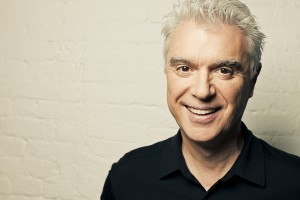 David Byrne, the famed driving force of the “art rock” band the Talking Heads, elucidates the beginnings of Wilson’s project in his essay, What’s A Knee Play?: “the CIVIL warS, in a nutshell, was to be a massive production presented at the 1984 Olympic Arts Festival for the XXIII Sports Olympiad in Los Angeles. Each massive act, each one a theater production in itself, was to be created in a separate country, and then the parts and sets would be shipped to L.A. and the whole thing presented as one long piece at the Shrine Auditorium. The whole shebang would run, well, at least 10 hours—not an extraordinary length for a Bob [Wilson] piece. There were hosts of collaborators and international actors of all types.”
David Byrne, the famed driving force of the “art rock” band the Talking Heads, elucidates the beginnings of Wilson’s project in his essay, What’s A Knee Play?: “the CIVIL warS, in a nutshell, was to be a massive production presented at the 1984 Olympic Arts Festival for the XXIII Sports Olympiad in Los Angeles. Each massive act, each one a theater production in itself, was to be created in a separate country, and then the parts and sets would be shipped to L.A. and the whole thing presented as one long piece at the Shrine Auditorium. The whole shebang would run, well, at least 10 hours—not an extraordinary length for a Bob [Wilson] piece. There were hosts of collaborators and international actors of all types.”
 For those lucky enough to see Wilson and Glass’s astounding remount of their 1976 opera Einstein on the Beach last October at the Chandler, it’s sad news that the CIVIL warS never came to be. Four sections of the five-act opera had been staged elsewhere, and some sections were left incomplete. The bigger issue was money. “It was all a big scandal,” wrote Byrne. “According to some, L.A. pulled its funding at the last minute, funding which was to cover not the creation of the sections but the shipping of the sets and paraphernalia to L.A. and the restaging at the Shrine. I, for one, was not surprised. Things may have changed by now, but back then L.A. had a weak philanthropic arts community for contemporary work, and the public there was also not accustomed to productions like this. That said, I saw some large-scale international acts as part of the Olympic Arts Festival, so some groups were getting support.”
For those lucky enough to see Wilson and Glass’s astounding remount of their 1976 opera Einstein on the Beach last October at the Chandler, it’s sad news that the CIVIL warS never came to be. Four sections of the five-act opera had been staged elsewhere, and some sections were left incomplete. The bigger issue was money. “It was all a big scandal,” wrote Byrne. “According to some, L.A. pulled its funding at the last minute, funding which was to cover not the creation of the sections but the shipping of the sets and paraphernalia to L.A. and the restaging at the Shrine. I, for one, was not surprised. Things may have changed by now, but back then L.A. had a weak philanthropic arts community for contemporary work, and the public there was also not accustomed to productions like this. That said, I saw some large-scale international acts as part of the Olympic Arts Festival, so some groups were getting support.”
Fortunately, the Rome and Minneapolis sections were completed. Byrne took his work on tour with himself as narrator through 1988; and while Glass’s gorgeous operatic work is rarely performed, a definitive recording was released in 1999. Both contain the whimsy, inexplicability, and musical invention similar to Einstein.
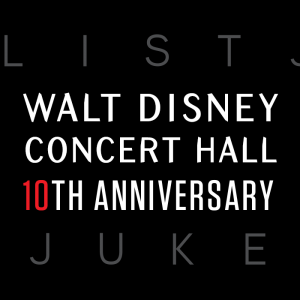 Commissioned by the Rome Opera and completed in 1983, Glass’s work is, according to liner notes, his most frankly operatic music to date, translating his idiom of musical lines into colorful yet lucid orchestral language. I have heard the 90-minute work, and it’s splendid. Glass adapted the powerful, projected style of opera singing to his own ends, spinning out long, lyrically expressive melodic lines culminating in profoundly moving music. Taken as a cantata in four parts, his Rome Section uses texts in several languages that juxtapose the devastation and finality captured in Matthew Brady photos with contemporary attempts to grapple with ongoing aberrations in the moral and civil order. The score provides the emotional infrastructure binding together the spoken and sung portions of the narrative. Librettist Maita de Niscemi culled the text from poems of Seneca, letters written during the American Civil War, and Robert Wilson’s original writing. Sung portions of the libretto are in Italian and Latin and spoken sections mostly in English, although phrases from other languages occur, reminding the listener that civil war is global.
Commissioned by the Rome Opera and completed in 1983, Glass’s work is, according to liner notes, his most frankly operatic music to date, translating his idiom of musical lines into colorful yet lucid orchestral language. I have heard the 90-minute work, and it’s splendid. Glass adapted the powerful, projected style of opera singing to his own ends, spinning out long, lyrically expressive melodic lines culminating in profoundly moving music. Taken as a cantata in four parts, his Rome Section uses texts in several languages that juxtapose the devastation and finality captured in Matthew Brady photos with contemporary attempts to grapple with ongoing aberrations in the moral and civil order. The score provides the emotional infrastructure binding together the spoken and sung portions of the narrative. Librettist Maita de Niscemi culled the text from poems of Seneca, letters written during the American Civil War, and Robert Wilson’s original writing. Sung portions of the libretto are in Italian and Latin and spoken sections mostly in English, although phrases from other languages occur, reminding the listener that civil war is global.
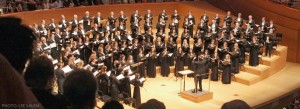 The upcoming production is a gigantic, not-to-be-missed event. Grant Gershon will conduct the LA Phil and his own LA Master Chorale, while Tanya Kane-Parry directs. Characters—including the Lincolns, Garibaldi, Robert E. Lee, and Hercules—will be sung by Hila Plitmann, soprano, Sasha Cooke, mezzo-soprano, Andrew Staples, tenor, Craig Verm, baritone, and Steve Pence, bass.
The upcoming production is a gigantic, not-to-be-missed event. Grant Gershon will conduct the LA Phil and his own LA Master Chorale, while Tanya Kane-Parry directs. Characters—including the Lincolns, Garibaldi, Robert E. Lee, and Hercules—will be sung by Hila Plitmann, soprano, Sasha Cooke, mezzo-soprano, Andrew Staples, tenor, Craig Verm, baritone, and Steve Pence, bass.
(As part of the Festival, the Master Chorale will present on April 6 You Are (Variations), considered by Steve Reich as his best work, and David Lang’s astoundingly beautiful Pulitzer Prize-winning the little match girl passion, based on the Hans Christian Anderson story).
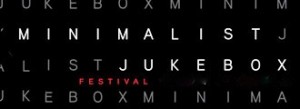 For Einstein, Wilson coined the phrase “Knee Plays” for the brief interludes that provided time for gigantic scenery changes. (If you think Legos for a moment, the term makes sense: There’s always an L-shaped piece like a bent knee which is indispensable to the model). When Wilson approached Byrne, the composer suggested that he collaborate on the transition sections. Byrne imagined these would be a lighter and cheaper production, easy to move on and off stage and which might therefore possibly tour beyond L.A., which it did.
For Einstein, Wilson coined the phrase “Knee Plays” for the brief interludes that provided time for gigantic scenery changes. (If you think Legos for a moment, the term makes sense: There’s always an L-shaped piece like a bent knee which is indispensable to the model). When Wilson approached Byrne, the composer suggested that he collaborate on the transition sections. Byrne imagined these would be a lighter and cheaper production, easy to move on and off stage and which might therefore possibly tour beyond L.A., which it did.
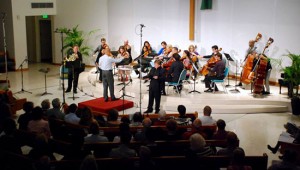 According to Byrne, “This piece was originally conceived to be a series of little play-lets that would happen downstage of a large curtain. All together they visually told a story, a kind of myth involving a tree that becomes a boat, travels to a far off land and a book that turns back into the tree.”
According to Byrne, “This piece was originally conceived to be a series of little play-lets that would happen downstage of a large curtain. All together they visually told a story, a kind of myth involving a tree that becomes a boat, travels to a far off land and a book that turns back into the tree.”
Byrne’s score sounds nothing like the music of Talking Heads. It was inspired by the solemn and jaunty sounds of New Orleans brass bands. “The music,” per Byrne, “is a mix of original compositions and brass transcriptions of choral folk music from different places.”
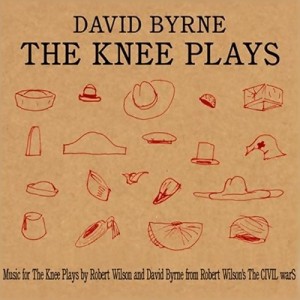 In his review of the recording, Eric Harvey notes: “Originally envisioning a Japanese drum ensemble, Byrne instead opted for music more in the vein of New Orleans’ Dirty Dozen Brass Band—a perfect fit for a play inspired by the Civil War and scored by Byrne. From the opening “Tree (Today Is an Important Occasion)” to the quintessentially Byrnian spoken-word closer “In the Future,” the music is variously light, dramatic, authoritative, and empathetic. With Byrne’s ethnomusicological streak in full force, several sections of his score were adapted from traditional music: “In the Upper Room,” “Social Studies (The Gift of Sound),” and “Things to Do (I’ve Tried)” are faithful gospel adaptations, and “Theadora Is Dozing” comes from the Bulgarian folk tradition.”
In his review of the recording, Eric Harvey notes: “Originally envisioning a Japanese drum ensemble, Byrne instead opted for music more in the vein of New Orleans’ Dirty Dozen Brass Band—a perfect fit for a play inspired by the Civil War and scored by Byrne. From the opening “Tree (Today Is an Important Occasion)” to the quintessentially Byrnian spoken-word closer “In the Future,” the music is variously light, dramatic, authoritative, and empathetic. With Byrne’s ethnomusicological streak in full force, several sections of his score were adapted from traditional music: “In the Upper Room,” “Social Studies (The Gift of Sound),” and “Things to Do (I’ve Tried)” are faithful gospel adaptations, and “Theadora Is Dozing” comes from the Bulgarian folk tradition.”
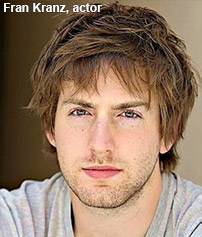 Jacaranda’s Artistic Director Patrick Scott told me that he finds the music “absorbing, provocative, and unsettling in that the music sounds familiar but alienating and foreign but accessible at the same time—as if it is in our collective consciousness.” Descriptions tumbled out of Scott’s mouth during our interview: “Intriguing; Brechtian; tongue-in-cheek; like a brass band playing at a wake” (the brass was intended to cover the noise of the sets being changed). Running just under one hour, Jacaranda’s performance of the entire set is the first in 25 years, and also the first without the composer as narrator. Mark Alan Hilt will conduct The Vintage Collectibles Jazz Band (sax, trombones, tuba, and trumpets) with drummer MB Gordy handling the percussive extras. Actor Fran Kranz—who appeared in Mike Nichols’ Broadway production of Death of a Salesman with the late Philip Seymour Hoffman—will narrate the text.
Jacaranda’s Artistic Director Patrick Scott told me that he finds the music “absorbing, provocative, and unsettling in that the music sounds familiar but alienating and foreign but accessible at the same time—as if it is in our collective consciousness.” Descriptions tumbled out of Scott’s mouth during our interview: “Intriguing; Brechtian; tongue-in-cheek; like a brass band playing at a wake” (the brass was intended to cover the noise of the sets being changed). Running just under one hour, Jacaranda’s performance of the entire set is the first in 25 years, and also the first without the composer as narrator. Mark Alan Hilt will conduct The Vintage Collectibles Jazz Band (sax, trombones, tuba, and trumpets) with drummer MB Gordy handling the percussive extras. Actor Fran Kranz—who appeared in Mike Nichols’ Broadway production of Death of a Salesman with the late Philip Seymour Hoffman—will narrate the text.
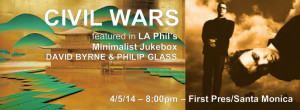 In his essay, Byrne discusses his decision to accompany the music with narration written by him as part of the Dadaist and Surrealist traditions: “None of these text pieces was directly related to the opera’s ‘story’ and they were certainly unrelated to the stage action.” (In the style of Noh and Kabuki theater, “The Knee Plays” premiered with sets and choreography in April 1984 at the Walker Art Center, hence its reference as the Minneapolis section).
In his essay, Byrne discusses his decision to accompany the music with narration written by him as part of the Dadaist and Surrealist traditions: “None of these text pieces was directly related to the opera’s ‘story’ and they were certainly unrelated to the stage action.” (In the style of Noh and Kabuki theater, “The Knee Plays” premiered with sets and choreography in April 1984 at the Walker Art Center, hence its reference as the Minneapolis section).
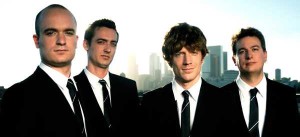 An example of text: “Being in the theater is more important than knowing what is going on in the movie” and “In the future there will be so much going on that no one will be able to keep track of it.” In “Things to Do,” there is a numbered to-do list (“Number 25: Putting houses next to bumpy things / Number 26: Shaking things next to other things”), Scott says he finds the mundaneness in this and other lists in “The Knee Plays” amusing—“You can’t not be engaged.”
An example of text: “Being in the theater is more important than knowing what is going on in the movie” and “In the future there will be so much going on that no one will be able to keep track of it.” In “Things to Do,” there is a numbered to-do list (“Number 25: Putting houses next to bumpy things / Number 26: Shaking things next to other things”), Scott says he finds the mundaneness in this and other lists in “The Knee Plays” amusing—“You can’t not be engaged.”
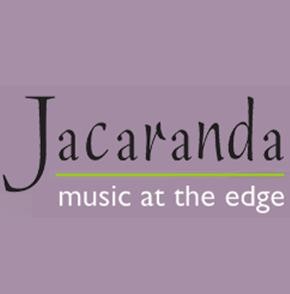 Jacaranda, with the motto of “music at the edge,” is a series of intimate concert adventures into the realm of new and rarely heard classical music designed to awaken curiosity, passion and discovery in diverse audiences.
Jacaranda, with the motto of “music at the edge,” is a series of intimate concert adventures into the realm of new and rarely heard classical music designed to awaken curiosity, passion and discovery in diverse audiences.
Also on Jacaranda’s program is Glass’s Mad Rush, a 16-minute piece written for the Dalai Lama’s first New York City visit in 1979. It alternates between two themes; one is peaceful and meditative, the other is fast and a bit frantic. Glass himself explained that the two themes represent the play of the wrathful and peaceful deities in Tibetan Buddhism. Originally for piano, Mr. Hilt will play the challenging repetition on First Presbyterian Church’s sumptuous Schantz organ (Hilt performed it on Jacaranda’s first concert; it is included in this program as a nod to Jacaranda’s 10th anniversary).
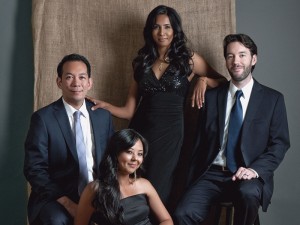 Concluding the Jacaranda program is Glass’s score for the 1985 Paul Schrader film, Mishima. The film chronicles with stylized scenes the famed Japanese writer Yukio Mishima’s failed coup d’état. Patrick Scott believes this is “one of Glass’s most exhilarating works, filled with contrasts and colors, and not repetitious like [his score for] The Hours.” The 24-minute suite from the film will be played by string quartets Lyris and Calder, five percussionists, electric guitar, and a synthesizer simulating the sound of a harp.
Concluding the Jacaranda program is Glass’s score for the 1985 Paul Schrader film, Mishima. The film chronicles with stylized scenes the famed Japanese writer Yukio Mishima’s failed coup d’état. Patrick Scott believes this is “one of Glass’s most exhilarating works, filled with contrasts and colors, and not repetitious like [his score for] The Hours.” The 24-minute suite from the film will be played by string quartets Lyris and Calder, five percussionists, electric guitar, and a synthesizer simulating the sound of a harp.
Philip Glass / The Rome Section from the CIVIL warS (1984)
Los Angeles Philharmonic
part of the Minimalist Jukebox Festival
Thursday, April 17 at 8:00 pm
Saturday, April 19 at 8:00 pm
Walt Disney Concert Hall
for tickets, call 323.850.2000 or visit www.LAPhil.com
David Byrne / The Knee Plays from the CIVIL warS (1984)
Philip Glass / Mad Rush (1981)
Philip Glass / music from the Paul Schrader film Mishima (1985)
Jacaranda
part of the Minimalist Jukebox Festival
Saturday, April 5 at 8:00 pm
First Presbyterian Church
1220 Second Street in Santa Monica
for tickets, call (213) 483-0216 or visit www.jacarandamusic.org

